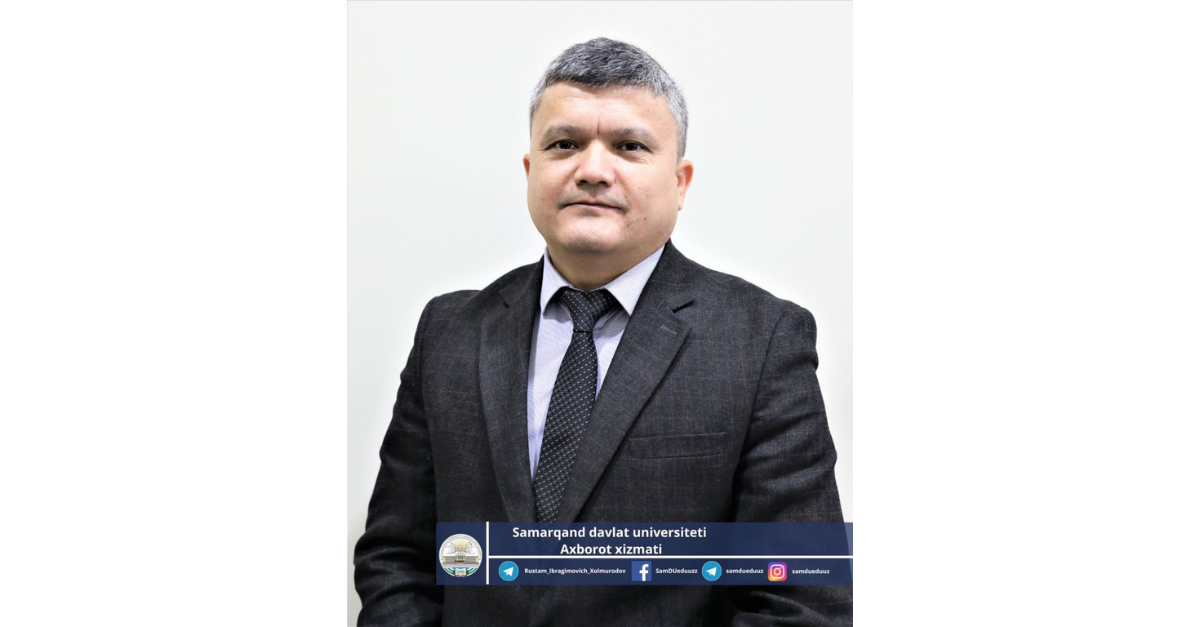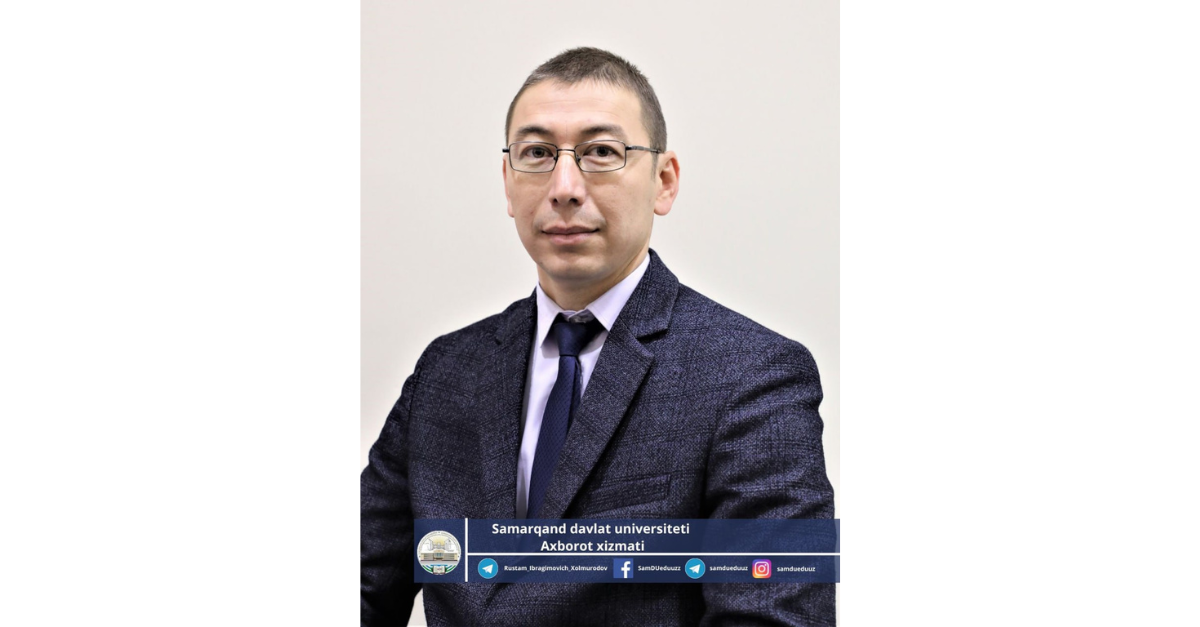“Chemistry, biology, physics and mathematics are the sciences that improve the economy and prosperity of the country…”

In today's global environment, science is at the heart of the development of countries. World experience shows that the development of the country in all sectors, first of all, occurs as a result of the development of exact and natural sciences...

Sanzhar Tillaev, Dean of the Faculty of Chemistry, Samarkand State University, Associate Professor:
- Our life cannot be imagined without chemistry. No matter which field you choose, agriculture, industry, medicine, health care, they are all directly related to chemistry. Every tool that lightens our burdens today is a direct product of chemistry. Even, just from the touch screen of a smartphone, the movement of cars, the heating of our house is precisely with chemistry. Whichever of the developed countries we look at today, we can witness the development of the exact and natural sciences, including in the field of chemistry.
It is true that chemistry has made our life much easier. It is extremely difficult today to achieve results obtained with the help of chemistry in a natural way, it requires a lot of time, raw materials and costs. But it is true that there are some problems with teaching chemistry and communicating its essence to students. Recently, practical chemistry, unfortunately, has been taught as theoretical subjects. This was the first obstacle in the correct communication of chemistry to students. It will be easier for students to learn and remember science if they study the subject through laboratory work in the classroom and observe the nature of the reactions.
"A child is not a vessel to be filled, but a candle to be lit." The ocean of knowledge is so deep that its end is unattainable. No need to clog the brain of a child with this endless knowledge. It is necessary to “ignite” him with the knowledge that he will need in later life so that he can illuminate the darkness with his potential and mature knowledge.
I think that it is necessary to make some changes in the teaching of chemistry in schools. For example, it would be appropriate to divide grades 10-11 into different directions. Textbooks up to grade 9 should be simplified. If a student chooses an in-depth study of science after grade 10, then he will be able to study difficult things. After that, they should be given in-depth knowledge, and their textbook should be different from the textbook of general and simple chemistry up to grade 9.

Davlat Tukhtaev, Head of the Department of Organic Synthesis and Bioorganic Chemistry, Associate Professor:
- The importance of chemistry in our life today was known to all mankind in the past period. Sciences such as chemistry, biology, physics and mathematics are considered sciences that improve the economy of the country and make it prosperous. These are priority areas that determine the place of any country in the world. Without them it is impossible to imagine development and progress.
The very existence that surrounds us is made up of chemistry. Human vision, hearing, and simple digestion are all the result of chemical processes. Therefore, it is impossible to imagine man and nature outside of chemistry.

Rizamat Begmatov, Head of the Department of Analytical Chemistry, Associate Professor:
- It is necessary to give children the first concepts of chemistry from kindergarten age. For example, from short cartoons, animated films, they are easy to understand. There are many such products in the world today. Their use should be expanded. When a student starts studying chemistry in the 7th grade of school, it can be difficult for him to fully understand some concepts. If the child has the basic concepts, this burden will never be heavy.
Information Service of
Samarkand State University

